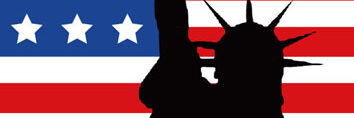オーストラリアのミッチェル弁護士から、弁護士ならではの法的視点から見た季節のお便りが届きました。オーストラリアの年末年始のパーティーのクリスマスプディングでこんなことが起こったらどうなるか解説してくれています。日本だったらお餅で考えてみたらいいでしょうか…?
↓↓ The original English version is bellow 🙂
フランク叔父さんとクリスマス・プディング
さっそくですが、質問です。
あなたに多額の遺産を残しているお金持ちのフランク叔父さんが、あなたの目の前でクリスマス・プディングを喉に詰まらせて苦しんでいたら、あなたは叔父さんを助けますか?それとも躊躇しますか(遺産を得るために…)?あなたと叔父さんの関係次第かもしれませんが。
窒息している人を助けること@オーストラリア
実は、オーストラリアの刑法では、窒息している人を助ける一般的な義務はありません。これは他の国の法律と異なる点かと思います。
食事の提供者に課せられた義務
オーストラリアの民法では、ゲストを招いて夕食会を開く際、食事を提供する人には、ゲストの安全に合理的な注意を払う一般的義務があります。
フランク叔父さんがレストランでお金を払って食事をしている(例えば、シドニー・ハーバーでクリスマス・ランチを楽しんでいる)場合は、親戚の家で開かれる夕食会よりも、食事の提供者に、より高いレベルの責任が求められます。
食事を準備する人が、夕食会会場の所有者である場合もあれば、そうでない場合もありますが、オーストラリアの民法では、物件の使用をコントロールしている人(所有者)の所有権を重要視しているため、「保険」の観点からも所有権は重要な意味を持ちます。
現実的には、オーストラリアの住宅所有者は不動産保険に加入しており、その保険契約に法的責任/補償の範囲に関する具体的な規定がある可能性が高いです。その結果、フランク叔父さんの怪我(または死亡)の原因を作った、あるいはその一因となった(法的な意味での)責任が住宅所有者にある場合、住宅所有者の保険が適用され、保険会社は叔父さんまたは叔父さんの近親者に賠償金を支払う責任を負うことになります。
民法上の過失
これは、民法でいう法的過失(歴史的には民法上の不法行為)、つまり、他人の不注意や一瞬の無謀さの結果として負傷した人に、金銭的補償を与えることが定められているからです。
金銭補償を受ける権利には刑事上の過失は必要ないため、傷害が故意によるものである必要はありません(オーストラリアの刑法上、傷害の程度によっては暴行罪、過失致死罪、殺人罪が成立する可能性があります)。
民法上の過失とは、合理的な注意とスキルを行使しなかったことを意味します。フランク叔父さんの窒息の原因はなにか、夕食会が開かれた場所(ホスト宅)に過失があったかどうかが重要なポイントになりますが、いろいろなパターンのシナリオが考えられるでしょう。
叔父さん自身の過失の場合
例えば、叔父さん自ら一気食いをして喉に食べ物を詰まらせてしまったなら、近親者による賠償請求は成立しないでしょう。
オーストラリアには、不法行為者(傷害を引き起こした、あるいはその一因となった人物のこと)は自分自身に対して民事請求をすることはできないというきまり(法律)があります。
これを交通事故の賠償請求に例えて言うなら、信号無視をしてトラックに衝突した車の運転手が、事故で負った人身傷害を補償する目的で、自動車に付帯する強制保険(車の所有者に加入義務がある)を利用しようとしても、その事故が100%運転者自身の過失によって引き起こされたため、運転者は強制保険を利用することができないのと同じです。
不適切な料理だった場合
次のシナリオは、フランク叔父さんが食べたクリスマス・プディングの調理が不適切だった場合です。
客を待たせたくなかったシェフが、調理時間を短縮した結果、一部、岩のように固いままのプディングが提供され、それによって叔父さんが喉を詰まらせてしまったというシナリオでは、プディングの焼成時間が不十分であったという過失により、シェフの責任が問われることになるでしょう。
料理の選択ができた場合
では、シェフが予めゲストに事情を説明し、生焼きプディングを食べるか、それとも完全に調理されたプディングが出来上がるのを待つか、客個人の選択であったとしたら、こうした状況はシェフの法的抗弁になるように思われます。
しかし、日本人シェフが、ゲストに日本語で警告を与えたものの、オージーであるフランク叔父さんは日本語がまったくわからず、その警告が理解できなかったというようなことも考えられます。
オーストラリアの法律では、シェフに抗弁の可能性があるものの、叔父さんが十分な知識を持って、自発的に加熱不十分なプリンを食べる危険を冒すことに同意したことを証明する義務があります。
自分の安全に気を配る国、オーストラリア
興味深いことに、現在のオーストラリアの州法では、負傷者は明白なリスクを認識していると推定されます。
その結果、明らかな危険から損害を被った場合、負傷者は民法上の補償を請求することができなくなっています。その根拠は、個人は自分自身の安全に気を配るべきだというもので、クイーンズランド州民事責任法のように法制化されています。
つまり、フランク叔父さんあるいはその近親者が、叔父さんが実際には危険を認識していなかったことを立証する必要があることを意味します。
既に酩酊状態だった場合
では、フランク叔父さんがアルコールをすでに何杯も飲んでいたことをシェフが知っていながら、加熱不十分のプディングについて警告した場合(警告が英語であったとしても)、つまり、叔父さんが酩酊状態であったために警告の意味を十分に理解していなかったとしたら、法律上何らかの違いが生じるのでしょうか?
このような状況では、警告に基づくシェフの抗弁は成り立たないでしょう。
結局のところ、クリスマス・シーズンにフランク叔父さんのような客がオーストラリアワインを何本も飲んでお祝いムードを楽しむのは普通のことですね。
同じ世帯内での場合
シェフがフランク叔父さんの妻だったら?
オーストラリアのコモンローでは、夫と妻の間には不法行為に対する免責特権が存在しました。しかしこれは、1975年にオーストラリア連邦政府によって立法された家族法(第119条)によって廃止されました。
オーストラリア法の下、家族内免責は親子間の訴訟には適用されません。つまり、フランク叔父さんが15歳(オーストラリアでは18歳になるまで子供とみなされる)で、シェフが彼の親であった場合、理論上、叔父さんは親から賠償金を得ることができます。
実際には、親がそうした賠償責任をカバーする保険に加入していない限り、賠償請求すること自体、意味はないでしょう。
自動車の使用に起因する人身事故など強制的なものを除き、ほとんどの賠償責任保険は、同じ世帯のメンバーに対する賠償責任を除外しています。
会社のパーティーの場合
フランク叔父さんが喉を詰まらせたのが、会社のクリスマスパーティだったらどうでしょうか。
オーストラリアでは通常、仕事中に負傷した従業員は労災補償を受ける権利があります。
しかし、オーストラリアの労災補償制度は、民事賠償請求の範囲である「完全な補償」を提供しようとしていません。
オーストラリアの制度は、そのベースとなっている英国の制度と同様、少なくとも重傷の場合には、従業員が雇用主に対してコモンロー上の請求を行う権利を保持しています。
このような民事訴訟では、注意レベルが問題となります。つまり、雇用主がどのような予防措置を取るべきだったか、ということです。
パーティがレストランで行われた場合(おそらく雇用主は食事の準備や提供のタイミングを管理できなかった)と、パーティが雇用主の自宅で行われた場合(おそらく雇用主は調理を直接管理できた)とを比較することに戻ります。
パーティー参加費を支払った場合
もうひとつ考えられるのは、フランク叔父さん(他のゲストとともに)がクリスマスパーティに参加するためにお金を払っていたという状況です。
このような場合、イベントを主催する組織は、十分な注意とスキルをもってサービスを提供する義務を負うことになります。
コモンローによる義務とは別に、この法的要件は2010年に導入された競争・消費者法と呼ばれるオーストラリア連邦政府の法律に由来します。
この法律により、適切なサービスの提供が保証されます。
その根拠は、フランク叔父さんが(クリスマスパーティ出席のために)料金を支払うことで、イベント主催者がディナーを安全に提供する法的義務を負うという商業的環境が生まれるからです。
賠償責任放棄書に署名した場合
フランク叔父さんが賠償責任放棄書に署名していれば、何か違いがあったのでしょうか?
権利放棄は厳格に解釈されるものの、適用されるかどうかについては確実でないのが常です。加えて重要なことは、オーストラリア消費者法に基づく黙示の保証違反に対する責任は排除できないということです。
つまり、賠償責任放棄書は、クリスマスパーティを主催した組織がフランク叔父さんの死に対して法的責任を負うことを妨げるものではありません。
紳士の真骨頂は、絡まったクリスマスツリーの電飾の扱い方、だそうですね? それでは皆様、2025年に起こるあらゆる法的問題が解決する(からまった電飾コードが解ける)ことを心からお祈り申し上げます!
▶️オーストラリア留学、オーストラリア滞在の皆様、サポートするエージェントの皆様、オーストラリアでの法的サポートは万全ですか?ご不明な点があれば、お気軽に i@jinken.com まで。
▶️オーストラリア滞在中の法的な緊急対応:
(日本語OK)MBA法律事務所 パートナー弁護士ミッチェル・クラーク 専用お問い合わせフォーム
▶️MBA法律事務所パートナー ミッチェル・クラーク弁護士のご紹介はこちらから
Christmas pudding: more pounds than dollars
Wealthy Uncle Frank is choking on his Christmas pudding, and near death.
Knowing he has left you a large inheritance, can you refrain from assisting him?
The answer depends on the relationship between you and Uncle Frank. Under the Criminal Law in Australia, there is no general duty to assist a choking person. This is different to the law in other countries.
Under the Civil Law in Australia, a general duty to take reasonable care for the safety of dinner guests applies to the person in charge of preparing the meal. And, there is, in effect, a higher level of responsibility if Uncle Frank is a paying guest at a restaurant (example, enjoying Christmas lunch on Sydney Harbour) compared to Uncle Frank joining a family dinner at the home of one of his relatives. The person preparing the meal may or may not be the owner of the property (on which the dinner is being held) yet ownership of property can be important in the context of linking to insurance. Meaning, the place where the dinner is being held creates obligation on the owner of that property because the civil law in Australia places emphasis on property ownership because of the owner’s control over the use and design of the property. And, from a practical perspective, in Australia homeowners are likely to have insurance connected to the property and within the insurance policy is likely to be a specific provision for Legal Liability coverage. The effect is that if the homeowner is responsible (in a legal sense) for creating or contributing to Frank’s injury (or death) then the homeowner’s insurance is triggered with the result that the insurance company will be responsible to pay compensation to Frank or to his next-of-kin.
The context is a consideration of legal fault through the lens of civil law. This involves the concept of negligence and historically is based on the civil law of tort that is intended to award financial compensation to a person injured as a result of another person’s carelessness or momentary recklessness. The entitlement to financial compensation does not require criminal fault, so not needing the injury to be the consequence of intentional harm (which under Australian criminal law might constitute the offence of assault, manslaughter or murder, depending on how drastic the harm!). Negligence, in the civil law context, means failure to exercise reasonable care and skill.
Whether there has been negligence depends on the key question in such situations: what is the cause of Frank’s choking? There are various possible scenarios.
One scenario involves Frank choosing to place a mountain of food into his mouth, either through placing an inordinate amount in one scoop or by attempting to consume multiple servings without waiting for each serving in turn to be ingested. In that scenario it’s likely that Frank himself will be the cause of his demise and it’s not possible for his next-of-kin to sue himself. There is an expression in Australian law that the tortfeasor (referring to the person who caused or contributed to the injury) cannot make a civil claim against themselves. Another situation of this type is where a driver of a car crashes into a truck because the driver of the car failed to obey a red-light signal. Although in Australia there is a compulsory insurance connected to motor vehicles (with obligation on the owner of the vehicle) for the specific purpose of providing compensation for personal injuries arising from car crashes, in such scenario the driver is unable to access that insurance because the accident was solely caused by the driver’s own negligence.
Another scenario is that the pudding was improperly prepared, such as cooking for a too short a period of time because the chef was running late and didn’t want to make the guests impatient to be fed. The act of the premature serving of the pudding resulted in the pudding pieces being rock hard and it was that dynamic which caused a clot in Frank’s throat. In that scenario, the chef would be held responsible due to negligence in the inadequate period of baking time of the Christmas pudding cake.
Would it make any difference if the chef had warned the guests prior to any consumption of the pudding and that via the warning it was made known that it was then the guests own individual choice as to whether to proceed to eat or to delay and allow for further time for cooking of the pudding? This would seem to provide a legal defence for the chef. However, there could be more to the story such as if the chef was Japanese and gave the warning to the guests in Japanese which Uncle Frank, being an Aussie, did not comprehend because he only knew the English language and had no knowledge of the Japanese language. Under Australian law, the chef would have a potential defence, with the onus of proving that Uncle Frank voluntarily, with full knowledge, agreed to incur the risk of eating the under-cooked pudding.
Interestingly, as a result of legislation enacted by the State Governments in Australia, there is now a presumption that injured persons are aware of obvious risks. The effect is that an injured person cannot claim compensation under civil law where the harm is suffered from an obvious risk. The rationale being that individuals should take care for their own safety, and this is now legislated such as in Queensland under the Civil Liability Act. The legislation means that Uncle Frank (or his next-of-kin) would need to establish that Uncle Frank was not, in fact, aware of the risk.
Would it make any difference under law if Uncle Frank was known by the chef to have consumed several alcoholic drinks prior to the chef making the warning (and even if the warning was in English) Frank’s intoxication meant he did not fully appreciate the meaning of the warning? A defence by the chef based on the warning would in those circumstances be unsustainable. Afterall, it is Christmas time and it would be regular for guests like Uncle Frank to be enjoying the celebratory mood by drinking several choice bottles of Australian wine.
What if the chef was Uncle Frank’s wife? At common law in Australia, there existed between husband and wife an immunity from suit in tort. This has been abolished by statute: via the Family Law Act (specially under Section 119) legislated by the Australian Federal Government in 1975.
Plus, intra-familial immunity was never extended in Australian law to actions between parent and child. Meaning, if Uncle Frank was 15 years of age (and, in Australia, someone is considered a child until they reach 18 years of age) and the chef was his parent, he could in theory recover compensation from his parent. In practice, such a claim is seldom worthwhile unless the parent has insurance covering such liability. Most liability policies, other than compulsory ones such as for bodily injury arising from the use of motor vehicles, exclude liability to members of the same household.
Would it make any difference if Uncle Frank was choking at a dinner which his employer had organised to celebrate the Christmas season? An employee injured at work is generally entitled in Australia to worker’s compensation. However, in Australia the worker’s compensation system has never attempted to provide “full compensation” which is the scope of the civil compensation claim. The system in Australia – like the British system on which it is based – preserves the right of employees to bring a common law claim against the employer, at least in cases of serious injury. In such civil cases are concerned with the standard of care. Meaning, what precautions, if any, the employer should have adopted. This question then turns back (most likely) on whether the dinner was at a restaurant (where the employer may not have had ability to control the preparation and timing of the serving of the meal), compared to the dinner being held at the home of the boss (where, presumably, the boss would have had direct control in the cooking of the Christmas meal).
Another possible scenario is the situation where Uncle Frank (with the other guests) had paid to attend the Christmas celebration event. In such situation, the organisation conducting the event will be obligated to provide the services with due care and skill. Apart from the obligation created by common law, this legal requirement comes from the Australian Federal Government legislation called Competition & Consumer Act introduced in 2010. From that government law there is a guarantee that the services will be fit for the purpose for which they were acquired. The rationale is that the payment of a fee (for the attendance at the Christmas event) by Uncle Frank creates a commercial environment in which the service provider has the legal obligations to provide the dinner safely.
Would it make any difference if Uncle Frank had signed a written liability waiver? While waivers are construed strictly, there always remains uncertainty about whether they will apply. And, more importantly, liability for breach of an implied guarantee under the Australian Consumer Law cannot be excluded. Meaning, a waiver does not prevent the organisation conducting the Christmas dinner to be held legally responsible for Uncle Frank’s demise.
As they say, this is the season to be jolly, and since I heard that the true mark of a gentleman was the way he handles tangled Christmas tree lights (!), here I’d like to wish you encounter the untangling of any legal problems that find you during 2025.

